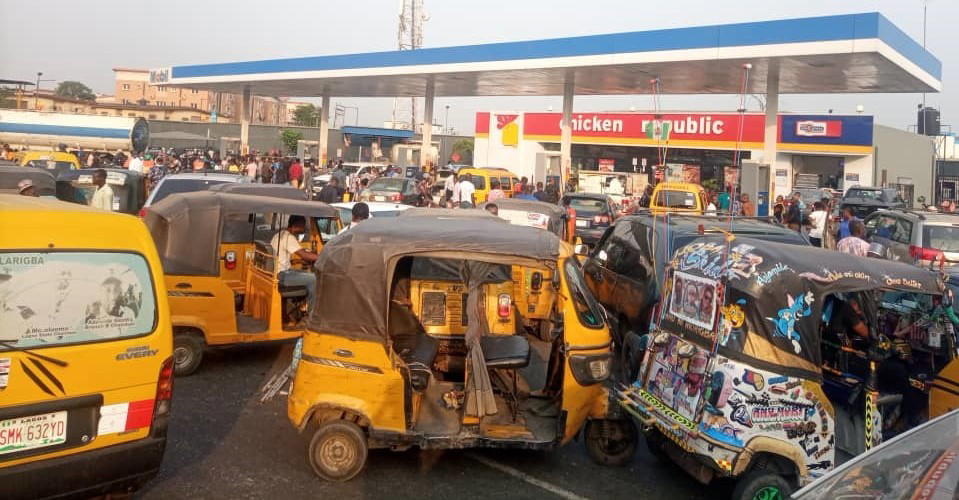Nigeria is grappling with a persistent petrol scarcity across the nation, with petrol marketers shedding light on several contributing factors. Akin Akinrinade, the Chairman of the Independent Petroleum Marketers Association of Nigeria (IPMAN) at the Ejigbo Satellite Depot, revealed that the scarcity has been exacerbated by the inactivity of many private depots in Lagos, which either are not selling petrol or are selling at exorbitant prices.
During a televised discussion, IPMAN’s National Secretary, John Kekeocha, informed that numerous stations had resumed receiving supplies after the Nigerian National Petroleum Company Limited (NNPCL) resolved a logistical problem. “It is only NNPC Ltd that supplies the product. They explained that there was a minor issue with logistics which has now been sorted,” Kekeocha stated.
Clement Isong, the Executive Secretary of the Major Oil Marketers Association of Nigeria (MOMAN), further explained the logistics issues: “The challenge is the availability of vessels to transport the products from their source to the depots. There’s a shortage of daughter vessels, which is causing these logistics challenges.”
Isong also addressed rumors of an impending price hike, reassuring that no such change is anticipated. He urged Nigerians to avoid panic buying, which he claims worsens the situation by creating unnecessary pressure on the supply chain.
A source from one of the major fuel depot owners, speaking on condition of anonymity, revealed that there had been no petrol supply to their depots for the last three weeks. This source suggested that the federal government's reluctance to continue subsidizing petrol at the expense of the savings from subsidy removal has contributed to the crisis. “The government was paying N1.3 trillion every month to ensure steady supply. However, in the last three weeks, the support from the government was not approved,” the source disclosed.
Efforts to reach the NNPCL for additional comments were unsuccessful, but the company’s spokesman, Femi Soneye, reiterated an earlier statement: “If there are disruptions in fuel distribution for two to three days, it typically takes double that time to return to normal. It should clear up shortly. One significant aspect is that we have product availability.”
The scarcity has had widespread impacts, disrupting work and academic activities in parts of the country, particularly Lagos and Ogun States, where many students and workers struggled with transportation due to increased fares and reduced vehicle availability.
Transportation costs have risen significantly in other regions as well. In Kano, fares for intra-city travel have doubled in some cases, and similar increases have been reported in Borno and Yobe States.
In Kwara State, the government has taken proactive steps to ensure petrol stations do not hoard fuel, imposing measures to alleviate the hardships faced by the populace. During an unscheduled visit to various stations, the task force team confirmed sufficient petrol supplies and urged stations to continue normal operations.
As Nigeria navigates through these challenges, the call for sustainable solutions to ensure stable and affordable petrol supply remains louder than ever.



0 Comments